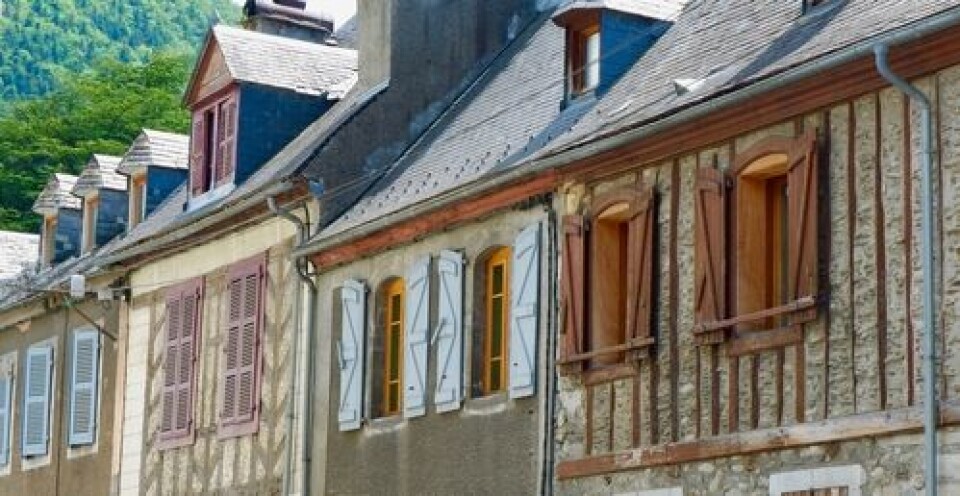-
What do French notaires do?
If you have bought property in France you will have dealt with one. But what else can they help with?
-
Points to check before buying a property in France
Cracks, termites, electrical checks…what to look out for
-
High fees on British assets normal under French law, says notaire
‘We’ve got nothing to reproach ourselves about,’ says professional at heart of fees dispute
Seven property trends highlighted by latest French notaire data
Property prices rise across France, Paris bucks apartments trend and first-time buyers struggle

Every three months, the Notaires of France publish a detailed report on the property market in France, highlighting trends and other points.
We look at the latest data, which relates to the third quarter of 2022, and summarise seven key points.
The price of non-new build houses has risen across the board
The growth in the price of non-new build houses across France was strong, with every area seeing a rise, and some regions seeing exceptional growth.
The largest increase was in Corse-du-Sud (25%), but also in smaller towns and cities in mainland France such as Montauban (10.7%), Amiens (12.8%), and Brest (12.3%).
House price growth was lowest in Normandy, with the two smallest increases in the country in Rouen (0.6%) and Caen (0.7%).
Read more: MAP: See where house prices have risen the most in France
Price of flats in Paris falls, cities see only slight increase
Every area also saw an increase in the price of flats – except one.
Paris saw a drop of 1.2% in prices, down to €10,660 per m². This is still the highest price by a long margin, however.
The next highest was Lyon, where the median price of a flat is €5,190 per m².
The growth in other large cities was also much lower than in the rest of the country; Nantes (1.2%), Bordeaux (1.3%), Lyon (1.5%), and Lille (0.1%), saw the four smallest rises in price in France.
More price negotiations due to energy prices
Price negotiations when buying a property - which are already expected to increase slightly higher than in 2022 - are being further driven by the cost of energy prices, as the energy efficiency of a home is now seen as more important.
Price negotiations of around 6% can be expected this year, according to Philippe Buyens, managing director of national estate agency Capifrance.
The rise in price of older homes is also lower than for newer ones, due to the poor energy efficiency in these buildings.
Covid-19 effects on market continues to diminish
The property market is slowly beginning to recalibrate after being heavily impacted in 2020 and 2021 by Covid-19, which led to a record number of sales of houses.
Whilst the volume of sales is still high, it is returning to a more sustainable level after the record breaking 1,213,000 houses sold in the 12-month period of August 2020 to August 2021, which was a 23% increase on the 12 months before.
Sales in the 12-month period from August 2021 - August 2022 were down 6% on the previous yearly figures, totalling 1,116,000
That volume is still above pre-Covid levels, however, but the decrease is expected to continue, and return to pre-Covid levels in the coming months.
Read also: French property market: what notaires and experts expect for 2023
Fewer people are leaving Ile-de-France
In 2021 the largest percentage of house purchasers in almost all departments were people from Ile-de-France, but that number has now plateaued across the country.
Most departments now are seeing a ‘stable’ figure of purchasers from Ile-de-France.
Some departments, especially those close to Ile-de-France, are even seeing a decrease in the share of buyers from the capital region.
The decrease in these buyers may be due to the end of a Covid-19 lifestyle, where many people left the region due to the lockdown, working from home possibilities and health concerns.
It is getting harder for first-time buyers
A higher percentage of loan requests from first-time buyers were rejected, according to the Banque de France.
A change in Usury Tax in February 2023 hopes to alleviate this slightly, however, and make banks more willing to lend to those entering the housing market.
The amount of new housing loans was slightly down in November 2022, but the interest rate was higher, and it was expected to reach 2.04% in December 2022 (data for this month has not yet been compiled).
Bleak outlook for new builds
Whilst the data focuses on non-new builds, it can pick out trends across the entire property market.
Notaires say that the increase of the raw materials used to build new houses, alongside the restrictive Zéro Artificialisation Nette policy - which limits building on natural land across France - is leading the new build market into a ‘dead end’.
They also cite the lower attractiveness of the Pinel scheme - which decreases income tax for those who bought new property - as another key factor.
The number of new build sales August 2021 - August 2022 was down almost 10% compared to the 12 months previous.
Related articles
Anti-Airbnb bill, drought damage: Five French property updates
Hundreds of estate agents in France are breaking the law
























